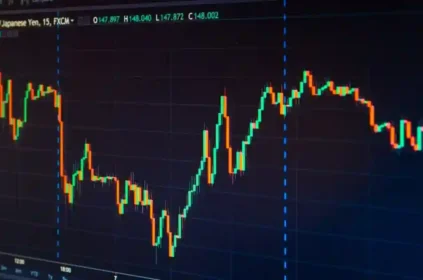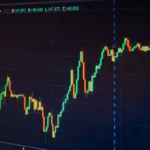In the realm of forex trading, where market conditions are constantly evolving and dynamic, the ability to adapt and learn from experience is crucial for success. Traditional forex robot strategies often rely on predefined rules and parameters, which may struggle to capture the complexity and nuances of the forex market. However, with the advent of reinforcement learning (RL) techniques, forex robots can now learn from their actions and experiences to adapt their strategies dynamically. In this article, we explore the role of reinforcement learning in adaptive forex robot strategies, examining its applications, benefits, and challenges.
Understanding Reinforcement Learning:
Reinforcement learning is a branch of machine learning that enables an agent (in this case, a forex robot) to learn from its interactions with an environment (the forex market) to achieve a specific goal (maximize trading profits). Unlike supervised learning, where the agent is trained on labeled data, reinforcement learning involves trial and error learning through exploration and exploitation.
In the context of forex trading, reinforcement learning algorithms learn to optimize trading strategies by receiving feedback in the form of rewards or penalties based on the outcomes of their actions. The agent seeks to maximize cumulative rewards over time by selecting actions that lead to favorable outcomes and avoiding actions that result in losses.
Applications of Reinforcement Learning in Forex Trading:
Reinforcement learning has several applications in forex trading, including:
- Trade Execution: Reinforcement learning algorithms can learn to optimize trade execution strategies by considering factors such as market liquidity, order flow dynamics, and transaction costs. The agent seeks to execute trades at optimal prices while minimizing slippage and transaction costs.
- Strategy Optimization: Reinforcement learning algorithms can learn to optimize trading strategies by exploring different parameter settings and learning from past performance. The agent seeks to identify patterns and trends in market data and adjust its strategy dynamically to maximize trading profits.
- Risk Management: Reinforcement learning algorithms can learn to optimize risk management strategies by considering factors such as position sizing, leverage, and stop-loss levels. The agent seeks to minimize the impact of adverse market movements and preserve capital during periods of volatility.
Benefits of Reinforcement Learning in Forex Trading:
Reinforcement learning offers several benefits for forex trading:
- Adaptability: Reinforcement learning algorithms can adapt to changing market conditions and learn from experience to improve trading performance over time. The agent continuously updates its strategy based on feedback from the market, allowing it to adapt to evolving market dynamics.
- Flexibility: Reinforcement learning algorithms are flexible and can accommodate a wide range of trading strategies and objectives. The agent can learn to optimize various aspects of trading, including trade execution, strategy selection, and risk management, to achieve specific goals.
- Optimization: Reinforcement learning algorithms can optimize trading strategies by exploring different parameter settings and learning from past performance. The agent seeks to identify optimal strategies that maximize trading profits while minimizing risks and costs.
Challenges of Reinforcement Learning in Forex Trading:
Despite its benefits, reinforcement learning poses several challenges for forex trading:
- Complexity: Reinforcement learning algorithms can be complex and computationally intensive, requiring significant computational resources and expertise to implement and train effectively.
- Data Requirements: Reinforcement learning algorithms require large amounts of historical market data to learn effectively. Obtaining and preprocessing high-quality data can be challenging and time-consuming.
- Overfitting: Reinforcement learning algorithms are prone to overfitting, where the agent learns to exploit patterns and trends in historical data that may not generalize to new market conditions. Overfitting can lead to poor performance in live trading environments.
- Risk Management: Reinforcement learning algorithms may struggle to incorporate risk management considerations into their strategies effectively. The agent may prioritize maximizing rewards over preserving capital, leading to excessive risk-taking behavior.
Case Study: Reinforcement Learning in Adaptive Forex Robot Strategies
To illustrate the role of reinforcement learning in adaptive forex robot strategies, let’s consider a case study.
Suppose we develop a forex robot trading strategy using reinforcement learning algorithms to optimize trade execution and risk management. The agent learns to adjust its trading strategy dynamically based on market conditions and feedback from past performance.
By backtesting the adaptive forex robot strategy across different market conditions and time periods, we observe improved performance compared to traditional forex robot strategies. The adaptive strategy demonstrates greater adaptability to changing market conditions, allowing the robot to optimize trade execution and risk management dynamically.
Conclusion:
In conclusion, reinforcement learning offers a powerful tool for developing adaptive forex robot strategies that can learn from experience and adapt to changing market conditions. By leveraging reinforcement learning algorithms, forex robots can optimize trade execution, strategy selection, and risk management dynamically, leading to improved trading performance and profitability. While reinforcement learning poses challenges such as complexity, data requirements, and overfitting, the benefits of adaptability, flexibility, and optimization make it a promising approach for forex trading. As reinforcement learning techniques continue to advance, we can expect to see further innovations in adaptive forex robot strategies, enabling traders to achieve consistent profitability in the dynamic and competitive forex market.















